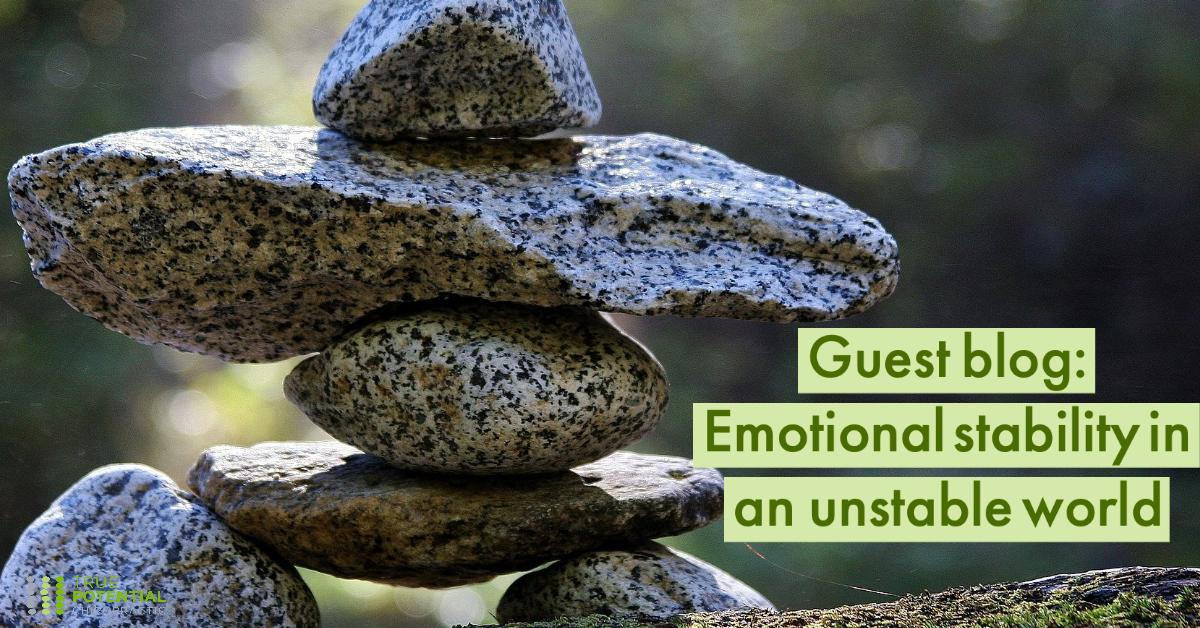
Now, more than ever, learning how to “roll with it” is sound advice for living a fulfilling – and joyous – life. After all, the best way to build emotional resilience is to recognize that the only thing we can change about a bad or uncomfortable situation is our own reaction to it. Emotional reactivity is ingrained in us when we are small children acting out at the boundaries set by our parents.
Many of us didn’t get the social-emotional resiliency training necessary to quell that reactivity as adults navigating the world. We grow up without the skills to handle crisis situations. Our reactive behaviors are often associated with a lack of knowledge, experience, or hope that circumstances will inevitably change and get better in time. An emotionally reactive response to stress and conflict usually leads to more stress and conflict. There is a reason there is a direct link between an argument preceding a car accident.
But we can learn how to be proactive about our response to stressors, building emotional stability and resiliency. We begin to take responsibility for our reactions and responses to the situations around us, leading to a calmer, more mindful way of living – one that results in much more happiness all around. Taking the time to invest in your own emotional stability shows a willingness to invest in yourself. It’s a reflection of self-worth and, in the same token, self-love.
Start with these simple exercises to calming your emotional reactivity, and you'll stop feeling like a victim of your life's circumstances. You'll begin to feel like the author of your own life's joy and purpose.
Breath
One of the many ways we can truly control our reactive nature is to first come back to the basics of controlling our body.
Our bodies react to thoughts just as quickly as to real-life circumstances. Re-living a heated argument will change your breath pattern and hormone production just like if you engaged in a new heat of dis-communication.
Slowing down your breath allows you to take a mental beat before deciding how you react in a tense situation. It's the first step to building emotional resiliency.
Notice your thoughts
Another way to control your emotions and begin to stabilize their influence on your life is to start by watching your thoughts. If you are a chronic pessimist, you’re negatively impacting your health and relationships. You will miss positive potential in your life by thinking in ways that undermine your progress.
Of course, some circumstances will arise to cause anger, sadness, or even worse. But by recognizing the feelings and thoughts as they come and giving them space to breathe (see above), you can handle what triggers you with grace. Obsessing over despair or unresolved anger is a form of self-abuse.
Adjust your physical environment
If your living situation is chaotic, it will undermine your ability to respond to emotional problems calmly and contemplatively. Look to create a home environment that helps calm and heal you – one that can buffer you from the emotional storms of interacting with the outside world.
Make a space where you can take a break from doom-scrolling the news and social media. Create room for a beloved hobby that feeds your soul.
Give people the benefit of the doubt
Remember that old adage, "Put yourself in someone else's shoes?" Most people are going about life trying to maximize their own utility. That means they are focused on accomplishing their goals and meeting their needs the best way they know-how. They are not usually considering you – a stranger - in the equation. Give them the benefit of the doubt, and recognize that we typically judge ourselves by our intentions, but we judge others by their actions. Begin seeing other people’s intentions instead of just their actions, and you’ll realize nobody really means any harm. They’re just doing the best with what they know. Let go of personal emotional reactivity to other’s actions.
Let's keep adjusting not only our spines but our outlook on life, and reassess what truly serves us and what doesn't. Nature is always changing. We only experience dissonance with our better nature when we don't allow ourselves to change and grow for the sake of ourselves and the people in our lives.
Guest Blog from Martin, TPC Massage Therapist

